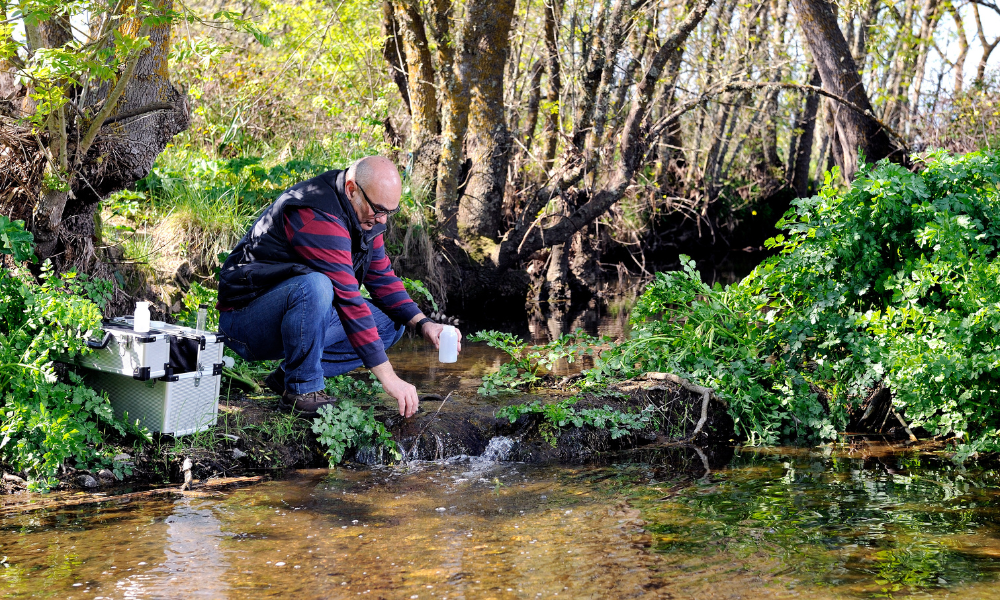The need for specialists in environmental chemistry will continue to grow in the coming years as governments and businesses continue to react to a global focus on sustainability, conservation and natural resource protection. But what’s environmental chemistry, exactly?
What’s Environmental Chemistry?
Designing chemistry processes for creating environmentally sustainable products, minimizing toxic waste creation or monitoring environmental conditions at a chemical plant are among the specializations environmental chemists might explore. Chemists need at least a bachelor’s degree in chemistry or a related field. However, a master’s degree or Ph.D. is needed for many research jobs.
Environmental chemists monitor what is in the air, water, and soil to understand how chemicals enter the environment, what affects those chemicals have and how human activity affects the environment. They develop an overall background in chemistry, including organic and biochemistry, and often study related disciplines such as oceanography, biogeochemistry, analytical methods, ecology, biology, geology, and engineering.
While environmental chemistry focuses on the effects of polluting chemicals on nature, another avenue is “green” chemistry, which focuses on the environmental impact of chemistry, including lowering consumption of nonrenewable resources and technological approaches for preventing pollution.
Environmental chemists may be exposed to contaminants and hazardous conditions during their work. Wearing protective equipment and following established safety procedures is important.
Responsibilities
While responsibilities vary from company to company, the basic responsibilities of an environmental chemist include developing data collection methods, records management of study data, forecasting and analyzing chemical impact, preparing reports and presenting research to stakeholders, advising organizations and policymakers on short- and long-term impacts of chemicals in the environment, reviewing research and literature in the field to say on top of latest information.
As you grow your career toward becoming a lead environmental chemist or chief researcher, other responsibilities will come into play, such as developing project scopes and budgets, data quality assurance, managing office-based tasks, supervising field work and filing regular updates with funding agencies and individuals.
Examples of questions an environmental chemist may investigate, according to the American Chemical Society include:
- Are the groundwater and earth beneath industrial and municipal dump sites contaminated with pollutants? If so, how can these sites be remediated?
- What happens to the household chemicals in the cleaners that run down your drain?
- What is the impact of factory carbon emissions on our air quality and climate?
- How can we reduce the amount of waste product from manufacturing and/or turn the waste product into compost, energy, or another useful product?
- What environmental regulations apply, or should apply, to companies?
- How do we keep unwanted pharmaceuticals from contaminating our waterways?
Pay and Growth
In 2020, the median pay for the 86,700 environmental, or “green,” chemists in the United States was $79,300 a year, according to the Bureau of Labor Statistics. Projected growth over the coming decade is pegged at 4.7%, which is about average for the job market. About 7,300 jobs will be open annually across the country, though California, Texas, Florida and the Upper Midwest and East tend to have the highest concentration of job potential.
Employers look for candidates who demonstrate the ability to broaden their skills and think in an interdisciplinary, analytical manner. If you’re a lab, consulting firm, or an industrial company in the environmental industry, contact EnviroStaff today for assistance with staffing. We can make placements in a variety of positions (not just environmental chemistry) to fulfill your hiring needs.
Looking for a new opportunity? EnviroStaff will learn about your career goals and connect with you the right position. Reach out to us today.

